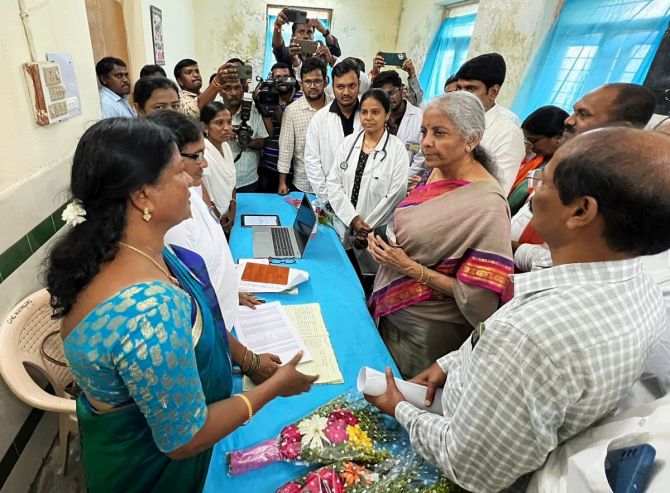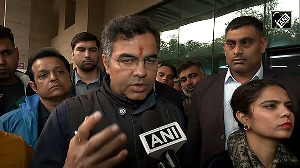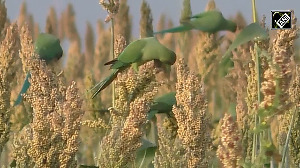An immune-escape Covid-19 strain coupled with the natural spike in influenza and pneumonia cases during winters may lead to a rise in hospitalisation.

Experts have cautioned against letting the guard down now as the new mutations on the block -- BQ.1 and BQ.1.1 -- are leading to a surge in cases across the world.
What worries the scientific and medical community is that an immune-escape Covid-19 strain coupled with the natural spike in influenza and pneumonia cases during winters may lead to a rise in hospitalisations.
India recently reported new Covid-19 cases such as XBB (Omicron subvariant), and the BQ.1 variant.
Maharashtra has reported BA.2.3.20 variant too.
A new recombinant variant BXX too is being picked up by the Indian Sars-CoV-2 Consortium on Genomics (Insacog).
Pradeep Awate, state surveillance officer, Maharashtra, said that the state has detected 13 XBB variants and all of them are under home-isolation.
“The saving grace is that so far there is no indication that these new sub-variants are leading to more severe disease. In Maharashtra seven laboratories are actively picking up new mutations, and we will keep our vigil,” he told Business Standard.
XBB is a recombinant lineage between two Omicron sub-lineages -- BJ.1 and BA.2.75. It is a fast spreading variant, and is said to be behind the recent spike in Singapore.
The Maharashtra health department said the XBB, has a growth advantage over BA.2.75 and evasive immune properties. Kerala has reported XBB cases.
The BQ.1 is a descendant of BA.5, which is behind the 60 per cent Covid cases in the US. In the US, the BQ.1 Covid strain and a descendant called BQ.1.1 have grown by 10 percent since September. US Centers for Disease Control and Prevention said BQ.1 and BQ.1.1. are the fast-growing subset of the Omicron variant in the US at present.
Since states like Maharashtra and Kerala have reported these emerging variants, the state health departments are already on their toes. Kerala held a high level meeting recently under health minister Veena Geroge and it is intensifying preventive measures in view of new variants. According to the Kerala health department around 2 percent of those infected may need hospitalisation.
George had indicated that the new genetic variants -- XBB and XBB 1 -- are contagious and she urged people with co-morbidities and the elderly to follow the Covid protocol by wearing masks.
However, officials indicated that so far there is no official guidance from the ministry of health on how to deal with the new variants at a district level. Other than the media announcements, no official meetings were conducted in this regard with the district-level officials in the state
The Maharashtra health department has, in fact, predicted a possible rise in cases in the coming winter months -- especially in a festive period. In Whole Genome Sequencing (WGS), BA.2.75 decreased to 76 percent from 95 per cent, the state health department said. This indicates a rise of other sub-variants.
Dr Sanket Jain, consultant chest physician – pulmonologist, Masina Hospital said, “Definitely, there is going to be an increase in the cases of hospitalisation during winter, especially in the population with underlying lung conditions, old age, and patients with immunosuppressant underlying comorbidities.”
Infections can be like viral flu, Covid, H1N1, haemophilus influenza, bacterial and fungal infections leading to pneumonia, and finally requiring hospital admissions, he added.
Shahid Jameel, senior research fellow at Green Templeton College at Oxford University said, “These won’t be the first variants infecting fully vaccinated people. The real question is if these will put more such people in hospitals.”
He added: “The infection I would worry most about this winter is seasonal flu. There is a good vaccine available and Indians above 50 should get it.”
Meanwhile, Gagandeep Kang, microbiologist and professor at Christian Medical College, Vellore, said that there is no evidence of more severe disease yet. She, however, cautioned that ‘layering’ is a concern (with pneumonia or influenza), and this was a bad flu season in the southern hemisphere.
US scientist and immunologist Dr Anthony Fauci has already sounded alarm over the entry of the two new sub-variants of the Covid19 virus.
In a television interview recently, Fauci said that the two descendants of omicron’s BA.5 subvariant, called BQ.1 and BQ.1.1, both have dangerous “qualities or characteristics that could evade some of the interventions we have". He added that one should not declare victory from Covid19 ‘too prematurely’.
Fauci said the new sub-variant has a "troublesome" doubling time. Already the BQ.1 strain has outpaced many other dominant strains in European countries.











 © 2025
© 2025